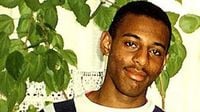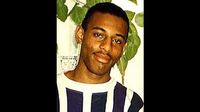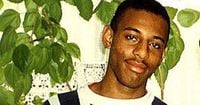In a dramatic and highly charged parole hearing on October 7, 2025, David Norris, one of the men convicted of the racist murder of Stephen Lawrence, admitted for the first time to his involvement in the attack that shocked Britain and changed the nation’s conversation on race and justice. Yet, even as Norris begged for forgiveness from the Lawrence family, he refused to name the other killers, leaving decades-old wounds unhealed and the full truth out of reach.
Norris, now 49, appeared via video link from prison, his face turned away from the camera. He wore a black T-shirt and glasses, his greying hair visible as he addressed the parole board and, indirectly, the family of Stephen Lawrence. The hearing was streamed to the Royal Courts of Justice in London, allowing Stephen’s family, the press, and the public to witness this extraordinary moment, according to BBC News and Sky News.
Stephen Lawrence, just 18 years old, was murdered in a brutal, unprovoked attack while waiting for a bus in Eltham, southeast London, on April 22, 1993. He and his friend Duwayne Brooks were targeted by a gang of up to six youths. The case became a defining moment in British legal history, exposing institutional racism within the Metropolitan Police and sparking widespread calls for reform.
During the parole hearing, Norris admitted, "I punched him, I tried to punch him twice, but I didn't stab him." He told the board that his actions were driven by "loyalty" and "group friendship," describing a "gang mentality" that left him "ready for violence at the drop of a hat." He insisted the attack lasted no more than ten seconds, calling it "an impulse reaction." Norris, who was 16 at the time, said, "I didn't have violence at the forefront of my mind" but acknowledged he was prepared for it nonetheless.
Despite his admissions, Norris steadfastly refused to name the others involved. "I would like to be able to tell the whole truth of exactly my part and others but I can't... because it would put me and my family at risk," he stated, as reported by Sky News. When pressed, he said, "I'm not going to be sitting here talking about other people. I'm here to take responsibility for me." He admitted he knew who was present that night and had seen one of the group holding a 22cm-long knife after the murder, but would not elaborate further.
Only Norris and Gary Dobson have ever been convicted for Stephen’s murder, both found guilty at the Old Bailey in January 2012 and sentenced to life imprisonment—Norris with a minimum term of 14 years and three months. The other suspects—brothers Jamie and Neil Acourt, Luke Knight, and Matthew White (who died in 2021)—have never been convicted, despite years of investigation and public scrutiny.
The parole hearing, held thirteen years after Norris’s conviction, was the first time he publicly acknowledged his role in the killing. For decades, Norris had denied any involvement, offering no-comment interviews to police and maintaining his innocence at trial. His change of heart, he claimed, came after watching a documentary featuring Stephen’s father, Neville Lawrence, during the 2018 World Cup. He said he first confessed his role to a Catholic priest after seeing Neville speak of forgiveness.
In a letter read at the start of the hearing, Norris expressed what he described as "genuine remorse for the death of the victim in this case and all the pain and all the grief it has and continues to cause to his family." He told the board, "Nothing I can say or do will change that and I will go to the grave with that guilt in my heart for eternity, and rightly so." He apologized not only to the Lawrence family but also to black and minority ethnic communities for the "fear" he had caused, adding, "I am by no means perfect. I'm certainly no longer the violent racist criminal 16-year-old boy I once was."
But these words rang hollow for Stephen’s family. His mother, Baroness Doreen Lawrence, attended the hearing and made her feelings clear in a statement read by her solicitor, Imran Khan KC. She refused to use Norris’s name, saying, "He killed my son in the most brutal and callous fashion. In doing so he changed my life and life of my family members forever." Baroness Lawrence described the years of pain, the breakdown of her marriage, the loss of privacy, and the relentless fight for justice that followed her son’s murder. "This person has not shown nor expressed any acceptance, any contrition and certainly has no humanity. If he did, he would have told us what he did, why he did it, and taken responsibility for his murderous actions," she said. "He has not and so I cannot forgive him. Anyone who does not accept what they have done and shown remorse for it remains in my view a danger to the public."
Baroness Lawrence’s statement also referenced Norris’s continued racist behavior in prison. Evidence presented at the hearing revealed that Norris had used racist language as recently as October 2022, including calling a female prison officer the N-word and referring to a nurse with a slur. There were also allegations of Norris attempting to radicalize a vulnerable young prisoner in the summer of 2023, supposedly as a member of the English Defence League—claims Norris denied. Additionally, he was caught with a sharpened screwdriver in his cell in 2022, which he said was used to hide an illicit mobile phone.
Stephen’s father, Neville Lawrence, also expressed skepticism regarding Norris’s motives. Speaking to the BBC, he said, "I wouldn't think that he's generally changed his behaviour and mind, if he doesn't name all the others that was with him." He argued that true remorse would require Norris to fully cooperate with the authorities and help bring the remaining perpetrators to justice.
The Justice Secretary joined the Lawrence family in opposing Norris’s release, with the government making its position clear. As the parole board weighs the evidence, it faces a stark decision: whether to release Norris on licence, move him to an open prison, or keep him incarcerated. A decision is expected later this month, and the hearing continues to attract intense public interest and scrutiny.
Norris, for his part, claims he wants to move on with his life. He told the board he would like to get married and settle down as a "law-abiding citizen" if released, and said he had been offered jobs as a project manager and delivery driver. He also described being the victim of several violent attacks in prison, including two instances where he was "nearly killed." But for many, including Stephen’s family, these personal hardships do little to offset the enduring pain and injustice left by his refusal to reveal the full truth.
As the parole board prepares to make its decision, the case remains a powerful reminder of the long shadow cast by Stephen Lawrence’s murder—and the unfinished business of justice for his family and the nation.



